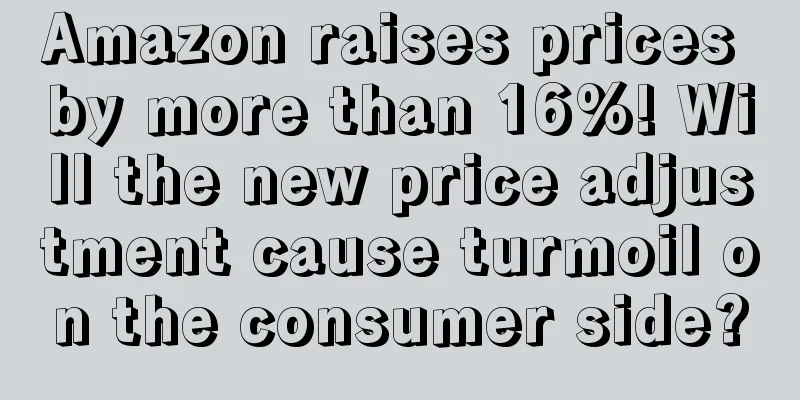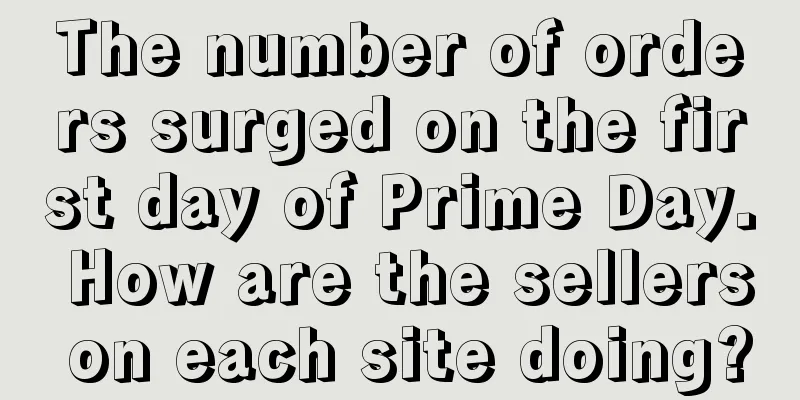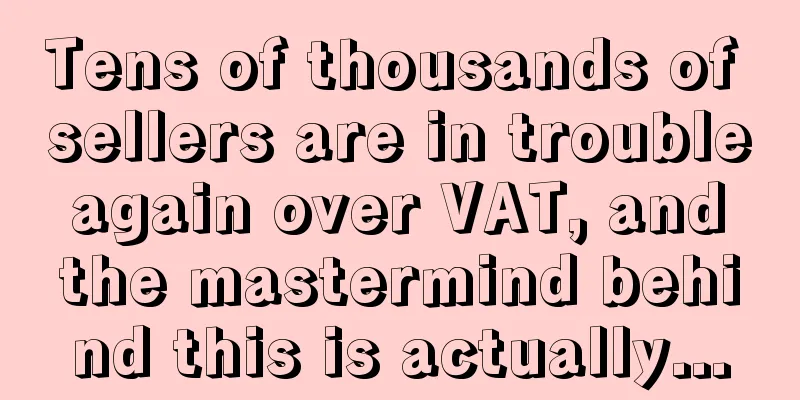Just now, Amazon's new policy was officially implemented! From now on, payment will be directly deducted from the order

|
Is the tax rate 20% or 16.7%?
(Source: Maiwen) |
>>: How to select products for independent websites in 2021? 10 tips to do it perfectly!
Recommend
What is Palmpay? Palmpay Review
PalmPay was founded on January 1, 2019. It is an A...
U.S. online grocery sales grew 17.8% in November, with monthly active users hitting a new high
It is learned that on December 10, according to fo...
Amazon forces sellers to buy insurance? ! See the detailed coping methods!
Yesterday, a shocking piece of news bombarded the...
How is the US beauty and jewelry e-commerce market? The latest data is released
Recently, DigitalCommerce360 released data on the ...
What is U-Link? U-Link Review
U-Link is an advertising product displayed on coop...
What is SellingExpress? SellingExpress Review
SellingExpress is a comprehensive multi-functional...
In 2022, AliExpress's global visits were twice that of Amazon!
We Are Social has once again partnered with Meltw...
Best Buy's profit in Q2 was cut in half! Sales of most categories dropped sharply! Q3 outlook is not optimistic!
It is learned that Best Buy released its Q2 financ...
Mixed feelings? Amazon's storage capacity has skyrocketed by tens of thousands, and this issue has become the biggest pain point!
If cross-border overseas expansion is a game of ca...
The listing was tampered with, and the price was reduced to 1/20 of the original price! Do you dare to buy such a deceptive UPC?
Amazon sellers are probably very familiar with UPC...
FBA is free! Just now, Amazon officially announced...
With only 7 days left before the new year, Amazon...
Cross-border high-quality updates-analyze competitors|advertising optimization|register US account|buy words
Summary and analysis of Amazon competitor listing ...
Amazon is the biggest winner of Cyber Week! 34.6% of American consumers shop on Amazon!
It is learned that according to a research survey ...
What is Bol.com? Bol.com Review
Bol.com is a Dutch online store offering general m...
Amazon system is out of order, orders are stuck at 0! Can the appeal button save the illegal sellers?
With the arrival of August, the traditional peak s...









